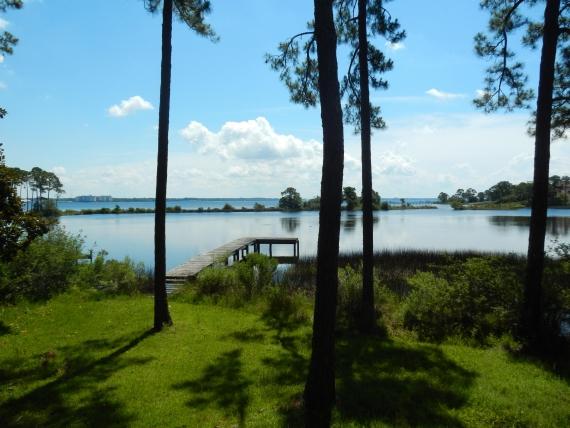4 Essential Pointers When Looking For Residential Land for Sale
Posted: January 03, 2015 by LandCentury

In the market for residential land? Finding the right piece of property can be a challenge, especially in todays real estate market. Here are some pointers to consider when looking for available residential land:
When searching for residential lots offered for purchase, location is the most important thing. No matter whether you plan on building your dream home or making an investment, the property you purchase should be in a great location.
How do you determine what a good location is? This depends on your purpose for buying the land. If youre looking to build a dream home, location is relative to your own personal preferences. If you want a house on a hill, then thats what you should look for.
However, if you plan on developing the land for investment purposes (such as a rental property), then youll need to consider other things as well, including:
- Proximity to the towns amenities. Is the property located near schools, shopping and the towns major employers? If not, you may have a harder time renting the property.
- Quality of schools. Youll have an easier time finding tenants or buyers if the local schools are good.
- Accessibility. Is the property easily accessible from the road? Properties that are not easily accessible may be more difficult (and costly) to develop. You may also have a harder time finding buyers or tenants if they cant get to your property easily.
It should go without saying, but its important to walk the property before you consider purchasing it. You should also obtain a survey of the land from the seller. Both the survey and your visual inspection will give you an idea of what obstacles you may face when building on the land. Will trees need to be cleared? Will hills need to be graded? How will utility hook-ups work? These are all things that need to be taken into consideration before buying residential land.
If you find vacant land youre interested in, youll need to follow the paper trail to make sure you have all the information you need to make an informed decision. Not all states require full disclosure of problems with properties, and even if they do, not all sellers will have all of the information on hand.
First, visit the health department to find out about sewer and water codes. Next, speak with the planning commission to find out about any zoning restrictions that may be in place.
Finally, you want to pay a visit to the assessors office. Here, youll find information about wetlands proximities and flood-zone boundaries, which may have an impact on how or where you build. In addition, youll also obtain important tax information related to the property.
Other pertinent information, such as restrictive covenants, can also be obtained from the assessors office. There may be stipulations regarding minimum square footage or requirements for frontage between the home and the road. The assessors office will also tell you whether or not you need to obtain an easement from your neighbor to access to your property, or if anyone else has an easement on the land.
When you purchase vacant land, you need to consider more than just the cost of the land itself. Development costs must also be taken into consideration. Most buyers underestimate costs, which can result in the delaying of development or a complete halt on the project.
Here are just a few of the many costs you will need to add into your budget:
- A survey, if necessary.
- Permits and fees. The number of permits you will need and the fees to obtain them will depend on your location and the property itself. Ask for a complete list of all permits you will need along with their fees.
- Landscaping.
- Septic system installation, if applicable.
- Utility hookups, including electric, phone, gas, cable, water and sewer. In some cases, these lines are already in place. If not, you will need to pay the cost of running them.
- Paving.
- Earthwork, including blasting, excavation and cut-and-fill.
- Legal costs, including closing and title search costs. Other legal costs may including right-of-way problems, variance requests, abutter challenges, boundaries issues, etc.
- Impact fees. Many towns now assess these fees as a way to help pay for schools and other public costs associated with new home development. These fees go by many names, including mitigation fees, development fees, facility fees or service availability charges. Rarely are these fees under $1,000. In some areas, these fees can be $20,000 or more and are used to discourage development.
Before you make an offer, make sure you have at least a rough estimate of the costs of purchasing the land and developing it.
Location, Location, Location
When searching for residential lots offered for purchase, location is the most important thing. No matter whether you plan on building your dream home or making an investment, the property you purchase should be in a great location.
How do you determine what a good location is? This depends on your purpose for buying the land. If youre looking to build a dream home, location is relative to your own personal preferences. If you want a house on a hill, then thats what you should look for.
However, if you plan on developing the land for investment purposes (such as a rental property), then youll need to consider other things as well, including:
- Proximity to the towns amenities. Is the property located near schools, shopping and the towns major employers? If not, you may have a harder time renting the property.
- Quality of schools. Youll have an easier time finding tenants or buyers if the local schools are good.
- Accessibility. Is the property easily accessible from the road? Properties that are not easily accessible may be more difficult (and costly) to develop. You may also have a harder time finding buyers or tenants if they cant get to your property easily.
Survey the Land
It should go without saying, but its important to walk the property before you consider purchasing it. You should also obtain a survey of the land from the seller. Both the survey and your visual inspection will give you an idea of what obstacles you may face when building on the land. Will trees need to be cleared? Will hills need to be graded? How will utility hook-ups work? These are all things that need to be taken into consideration before buying residential land.
Follow the Propertys Paper Trail
If you find vacant land youre interested in, youll need to follow the paper trail to make sure you have all the information you need to make an informed decision. Not all states require full disclosure of problems with properties, and even if they do, not all sellers will have all of the information on hand.
First, visit the health department to find out about sewer and water codes. Next, speak with the planning commission to find out about any zoning restrictions that may be in place.
Finally, you want to pay a visit to the assessors office. Here, youll find information about wetlands proximities and flood-zone boundaries, which may have an impact on how or where you build. In addition, youll also obtain important tax information related to the property.
Other pertinent information, such as restrictive covenants, can also be obtained from the assessors office. There may be stipulations regarding minimum square footage or requirements for frontage between the home and the road. The assessors office will also tell you whether or not you need to obtain an easement from your neighbor to access to your property, or if anyone else has an easement on the land.
Consider the Costs
When you purchase vacant land, you need to consider more than just the cost of the land itself. Development costs must also be taken into consideration. Most buyers underestimate costs, which can result in the delaying of development or a complete halt on the project.
Here are just a few of the many costs you will need to add into your budget:
- A survey, if necessary.
- Permits and fees. The number of permits you will need and the fees to obtain them will depend on your location and the property itself. Ask for a complete list of all permits you will need along with their fees.
- Landscaping.
- Septic system installation, if applicable.
- Utility hookups, including electric, phone, gas, cable, water and sewer. In some cases, these lines are already in place. If not, you will need to pay the cost of running them.
- Paving.
- Earthwork, including blasting, excavation and cut-and-fill.
- Legal costs, including closing and title search costs. Other legal costs may including right-of-way problems, variance requests, abutter challenges, boundaries issues, etc.
- Impact fees. Many towns now assess these fees as a way to help pay for schools and other public costs associated with new home development. These fees go by many names, including mitigation fees, development fees, facility fees or service availability charges. Rarely are these fees under $1,000. In some areas, these fees can be $20,000 or more and are used to discourage development.
Before you make an offer, make sure you have at least a rough estimate of the costs of purchasing the land and developing it.




